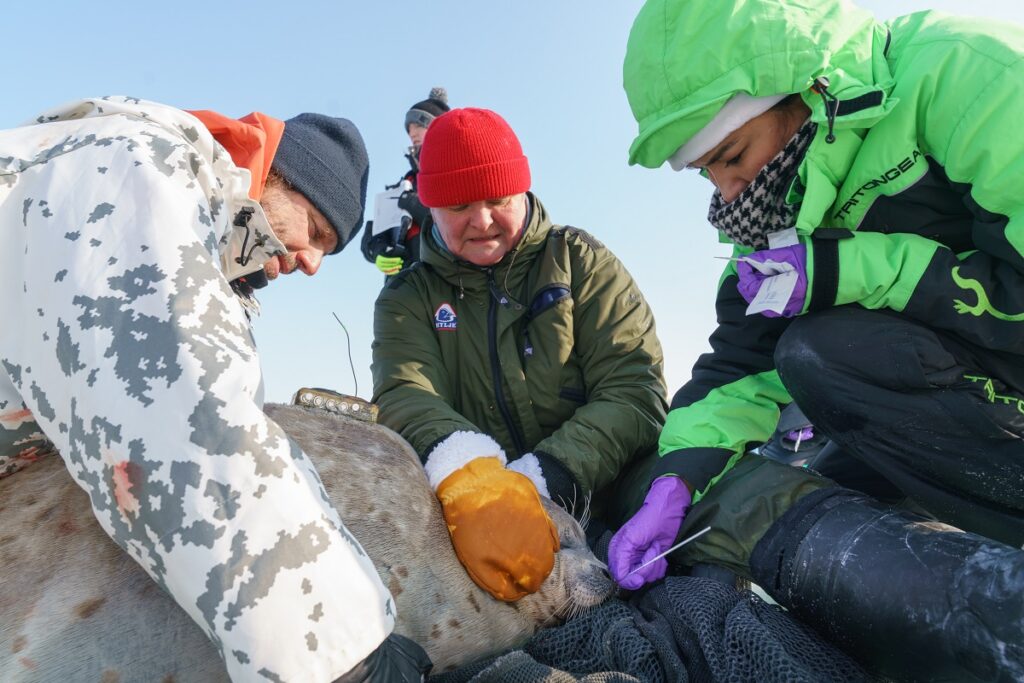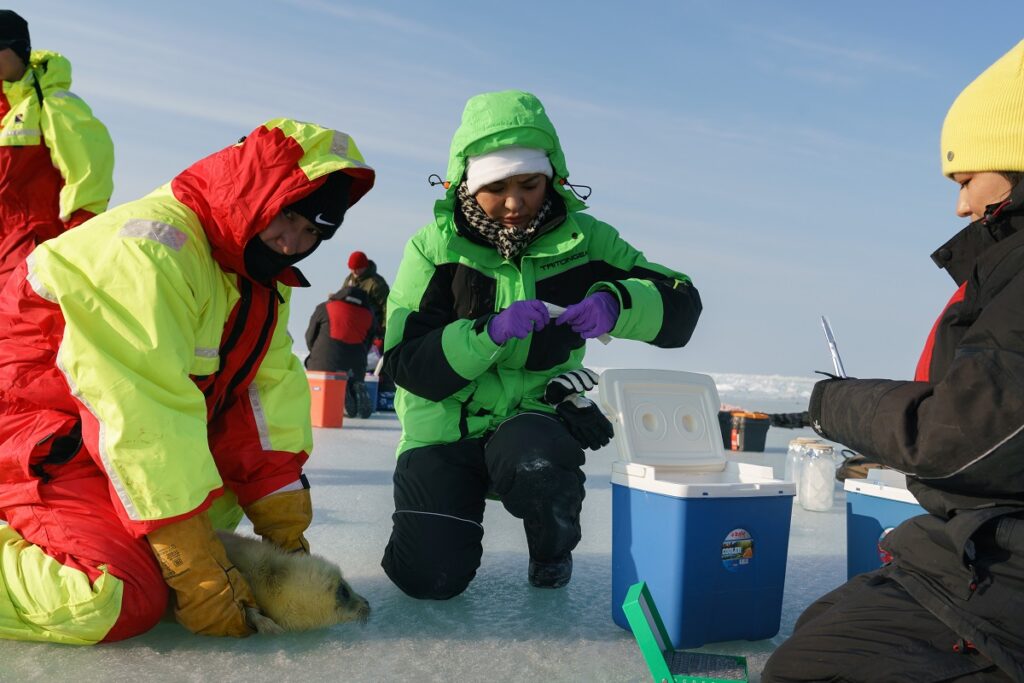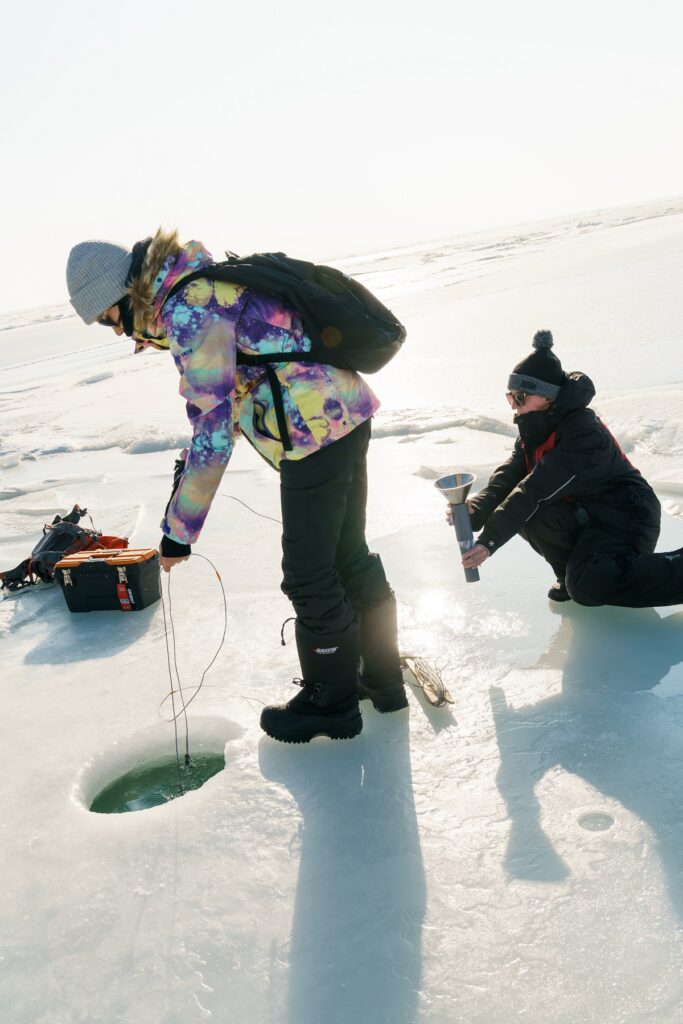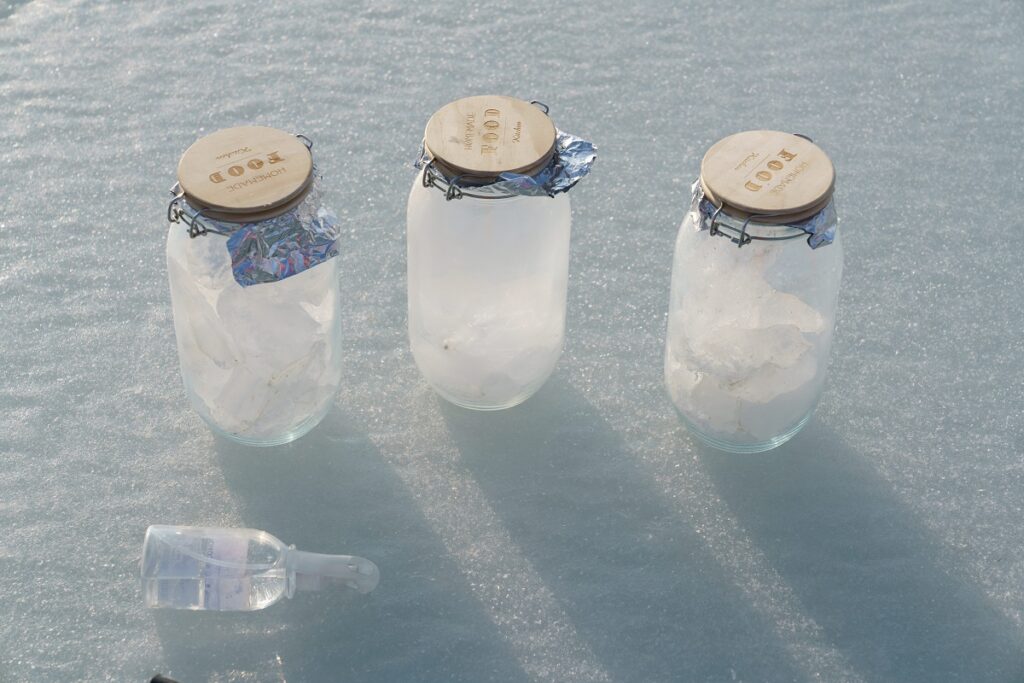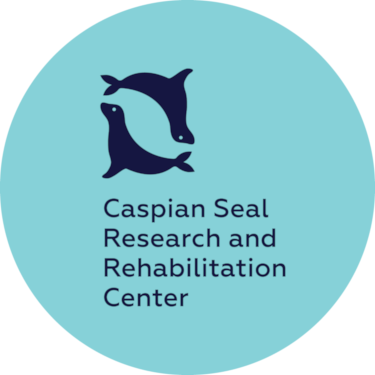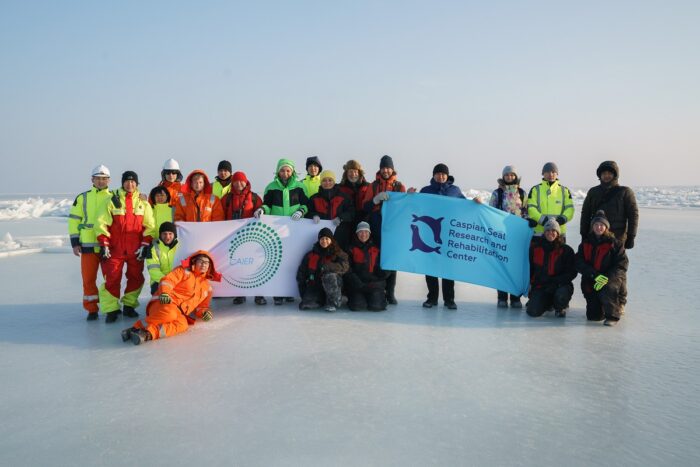The Central Asian Institute for Environmental Research (CAIER), under the leadership of Aselle Tasmagambetova, organized a study of the severe ecological situation in the Caspian.
For the first time, such famous scientists in the field of marine biodiversity as Daniel Costa, Emeritus Professor of Ecology and Evolutionary Biology of the University of California, Tommy Nyman, Professor of the Norwegian Institute of Bioeconomy Research (NIBIO), as well as scientists from Great Britain, Kazakhstan, USA, Saudi Arabia and France were gathered to participate in research work on the Caspian Sea in Kazakhstan.
A number of unique analyses were performed during the research work. For the first time, scientists managed to obtain milk samples of feeding females of an endangered species for further genetic analyses. The discovered sick animals were provided with veterinary assistance, it was possible to collect biomaterials for research on the level of the stress hormone, immune reaction, intoxication level.
Scientists have installed electronic tracking sensors on seals that have undergone veterinary treatment. The instruments will determine the exact location of the animals, the depth of immersion and establish whether the seal is on ice or in water.
All samples of biomaterials and samples of environmental objects and information from sensors are received for further research at the CAIER laboratory.
Ice coating samples were also taken from the Caspian to determine the content of microplastics and other organic water pollutants.
“The Institute has been dealing with the issues of environmental safety of the country for more than 10 years. We have been studying the problem of the decline in the population of the Caspian seal in details since 2015, because the health of the endemic of the Caspian Sea is a marker of the ecological well-being of the entire Caspian region. We hope that the data obtained during the research work will provide an answer to the question about the reasons for the catastrophic decline in the Caspian seal population”, – hopes Aselle Tasmagambetova, ecologist, founder of CAIER.
Tests were also carried out to identify microparasites, biotoxins, as well as to determine the food ration of Red Book animals, an ultrasound procedure was carried out.
A team of researchers led by Professor Nyman will conduct a study of microparasites identified in seals.
Scientists led by Professor Duarte will investigate selected samples of snow coating and water to study ecological DNA (eDNA), which will help assess the degree of vulnerability of marine biodiversity.
Genetic study of seal milk, biopsy of fat and muscles will be carried out by Professor Simon Goodman.
